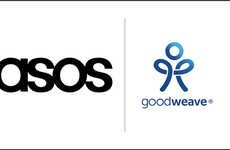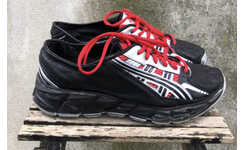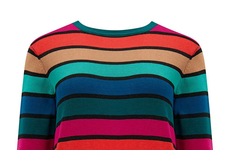
This Company Aims to Empower Socially Isolated and Poor Women
Mishal Omar — October 27, 2016 — Eco
References: kickstarter
'Juta Shoes' is a company that focuses on anti-oppression production and promotion and is environmentally friendly in the process.
The company was created by Joanna Hamer for the purpose of providing ethical fashion for people to enjoy. The company is "against fast fashion and waste, unethical supply chains, xenophobia and sexism." Its clothing is made by women who are socially isolated and underemployed, giving them an opportunity to earn money and autonomy in the process. The anti-oppression fashion company provides shoes made with upcycled leather scraps from London and eco-friendly jute soles from southern Spain.
This ethical company is able to target a multitude of world issues with its simple products and hopes to be made available at ethical fashion boutiques, online retailers and pop-up stores in the United Kingdom.
The company was created by Joanna Hamer for the purpose of providing ethical fashion for people to enjoy. The company is "against fast fashion and waste, unethical supply chains, xenophobia and sexism." Its clothing is made by women who are socially isolated and underemployed, giving them an opportunity to earn money and autonomy in the process. The anti-oppression fashion company provides shoes made with upcycled leather scraps from London and eco-friendly jute soles from southern Spain.
This ethical company is able to target a multitude of world issues with its simple products and hopes to be made available at ethical fashion boutiques, online retailers and pop-up stores in the United Kingdom.
Trend Themes
1. Ethical Fashion - The trend towards ethical fashion is creating opportunities for companies to disrupt traditional supply chains and empower marginalized communities.
2. Sustainable Production - The growing demand for environmentally friendly products is driving the need for innovative production methods and materials like upcycled leather and eco-friendly jute soles.
3. Socially Responsible Entrepreneurship - The rise of socially responsible entrepreneurship allows businesses to address social issues while also creating economic opportunities for marginalized individuals.
Industry Implications
1. Fashion - The fashion industry can tap into the trend of anti-oppression fashion by adopting ethical and sustainable practices, supporting marginalized communities, and transforming the traditional supply chain.
2. Social Enterprise - The social enterprise industry can benefit from the disruptive innovation opportunities presented by anti-oppression fashion companies, as they empower marginalized individuals and address social issues through their business models.
3. E-commerce - The e-commerce industry can play a role in promoting and selling ethical fashion products from companies like Juta Shoes, providing a platform for consumers to support socially responsible businesses.
6.1
Score
Popularity
Activity
Freshness























